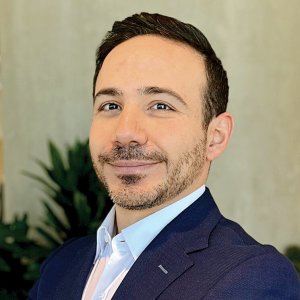Prevention Can Ease Financial Burden on Health System

STORY INLINE POST
Q: What characteristics have made your mother-infant unit stand out in Mexico?
A: For more than 70 years, Centro Médico Dalinde’s vision has been to provide quality patient-centered medical care. Many people think that expensive insurance coverage or large out-of-pocket payments are required to receive quality medical service. However, after almost six years of operating our mother-infant unit, we have achieved an excellent position by integrating medical services with a high level of quality focused on restoring the health of women and children at affordable costs and with skilled specialists and subspecialists.
Q: How can Mexico achieve a system that is closer to universal healthcare?
A: Access to health is a universal right for which it is essential to disconnect access to health insurance from formal employment and have a comprehensive vision of social protection. This vision includes protection against health risks through surveillance, prevention and regulation activities and the protection of patients through quality assurance of medical care and financial protection against the economic consequences of illness and injuries. The issue of financing is of vital importance. Today, public health spending in Mexico is equivalent to just 2.5 percent of GDP, well below the 6 percent estimated by the OECD as the minimum needed for an optimal health system.
On the other hand, in Mexico, the participation of the private sector in the supply of medical and healthcare services has been growing significantly for years and it is expected that it will have an increasingly important role for which strategies should be created.
Q: What are your recommendations regarding the steps hospitals could take to promote a culture of prevention and also increase the number of people they treat?
A: Unfortunately, one of the problems of our health system is that it is more reactive rather than preventive. More than 50 percent of health problems can be resolved with prevention in first level units. If you take care of yourself and follow the correct steps (diet, exercise, etc.) you can prevent conditions such as diabetes and high blood pressure. Another example is oncological conditions in which with intentional searches in population with risk factors many cases would be discovered on time, improving the prognosis of the patient and with much lower treatment costs. This means that preventive medical care can eliminate a very important financial burden from the health care system. For this reason, we all need to change to a culture of medical education focused on prevention and fostered by families, schools and workplaces so people are empowered and also more responsible for their own health.
Q: The government has proposed salary raises for doctors in rural areas with the goal of drawing doctors to areas in need. What is your take on this proposal?
A: It is good that doctors’ work starts to be dignified. However, this goes much further because in the end doctors who would move to these remote places must have the peace of mind that their family will grow in an environment with access to services (schools, hospitals, etc.) and that, above all, these communities or municipalities are safe places for them and their families.
Q: Is Hospital Dalinde interested in attracting more medical tourism?
A: Our institution has resources in hospital infrastructure and highly trained human resources, in addition to having recently received the recertification by the General Health Council, which recognizes us as a healthcare establishment that meets the necessary standards to provide services with good quality and patient safety. In addition, we are certified in ISO 9001. We already care for foreign patients at our institution but it is definitely an area of opportunity that should be taken advantage of.
Q: What is your view on c-section versus natural birth?
A: Childbirth is the natural process of birth of the human being and although there are strict medical indications of when to carry out a c-section, these procedures should be fewer and totally justified. Definitely all public and private health institutions must work hard to reduce the worldwide trend of an unjustified increase in cesarean operations which is shown to increase health risks for the mother and the newborn.
Q: What are the hospital’s main objectives for 2020-2021?
A: We want to continue being a private medical institution of reference in the obstetrics area of high risk and neonatal, as well as to increase the care of patients with gynecological and pediatric conditions that require specialized attention due to diseases of high complexity that require third level infrastructure care in a comfortable and safe environment.
Q: What are the therapeutic areas with the most growth potential in Mexico?
A: It is vitally important that the epidemiological transition through which our country is going through is taken into account. Chronic degenerative diseases are becoming increasingly important. Universities and residency programs should increase the training of health professionals in these areas (internists, cardiologists, geriatricians, etc.) but, above all, strengthen the training and number of first-contact doctors. A preventive approach could boost early and timely detection of these and other conditions that today afflict our population.
Centro Médico Dalinde, part of Grupo Dalinde-San Angel Inn, is a private hospital located in Mexico City. The hospital is best known for its specialization in maternal and pediatric care. A recent expansion in the mother-infant unit will add patient beds and surgery capacity

 By Miriam Bello | Senior Journalist and Industry Analyst -
Mon, 04/20/2020 - 17:07
By Miriam Bello | Senior Journalist and Industry Analyst -
Mon, 04/20/2020 - 17:07















